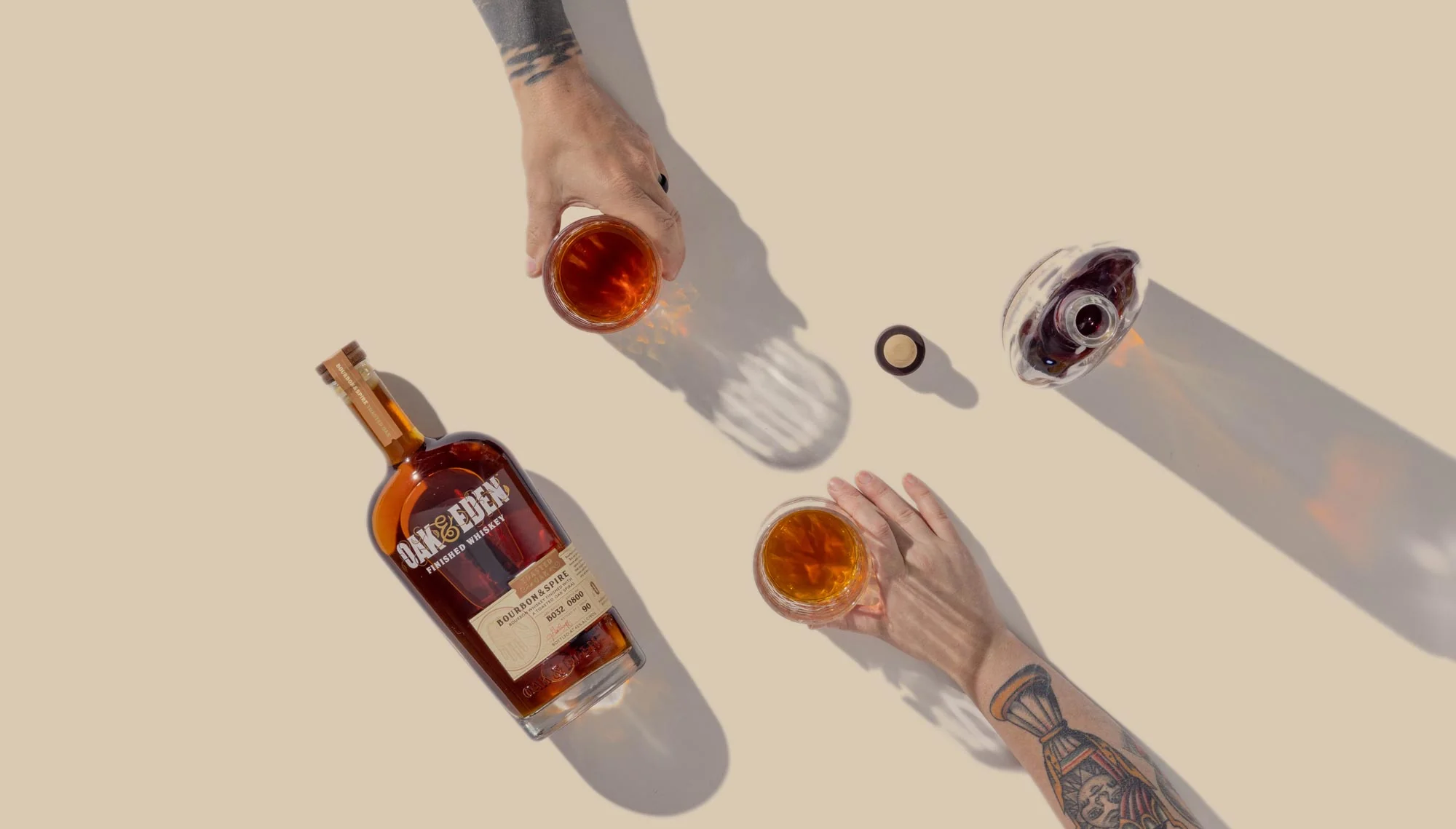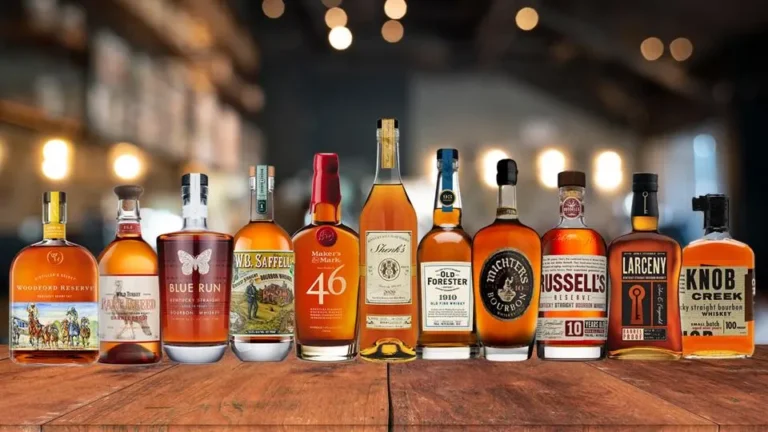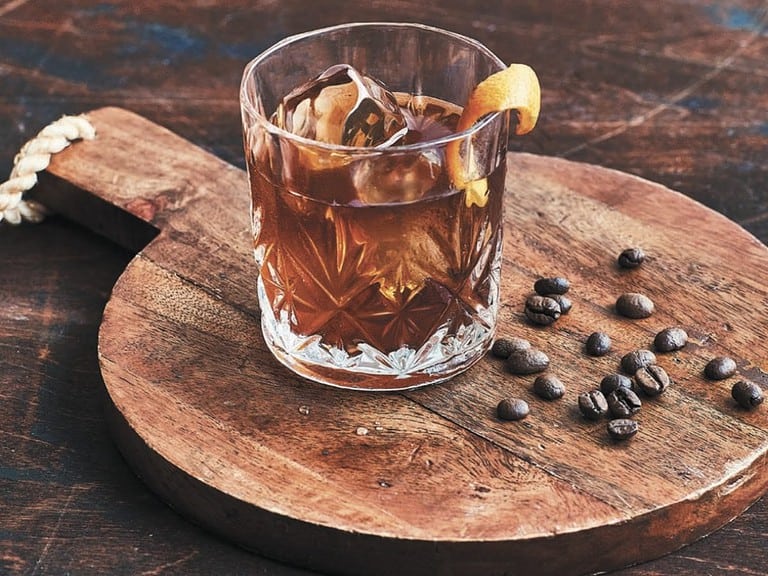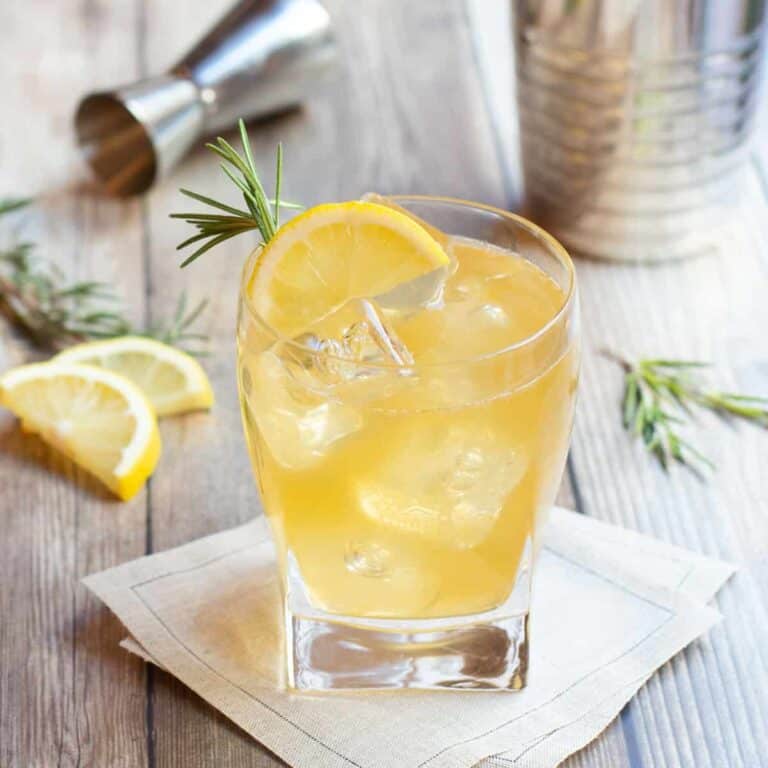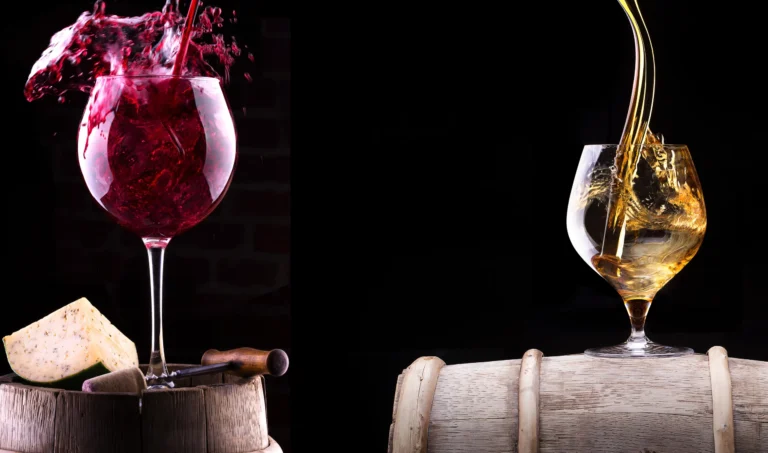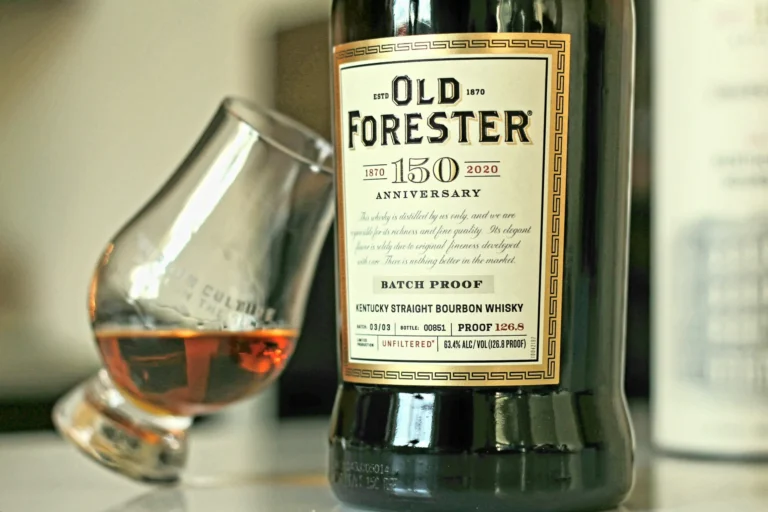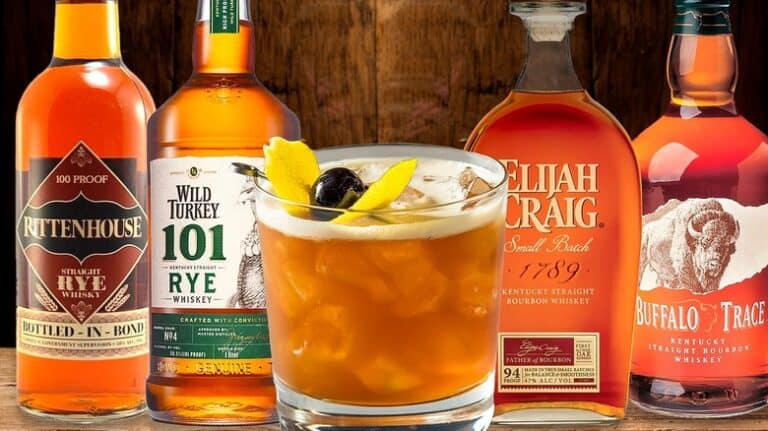What’s the Difference Between Bourbon and Whiskey Taste?
Diving into the world of spirits can feel like stepping into a flavor-packed jungle. Today, we’re on a mission to untangle the vines of What’s the Difference Between Bourbon and Whiskey Taste. It’s like comparing classic rock to a whole music festival—each has its vibes, fans, and standout moments. Whether you’re a seasoned sipper or new to the scene, join me as we explore this spirited landscape. Ready to swirl, sniff, and sip your way to clarity? Let’s get this tasting tour started!

What Is Bourbon?
Bourbon is like that quintessential American spirit, born and raised in the U.S. Think of it as whiskey’s sweeter, slightly more rebellious sibling. It’s got this rich, full flavor that comes from its main ingredient—corn.
This gives bourbon its signature sweetness, mixed with hints of vanilla, oak, and a warm, toasty finish. It’s like the spirit equivalent of a hearty American welcome.

What Is Whiskey?
Whiskey is the grand umbrella term for a variety of distilled spirits made from fermented grain mash. Picture it as the well-traveled friend with stories from Scotland, Ireland, the U.S., and beyond.
Each place adds its own twist, from the smoky peat of Scotch to the smooth, triple-distilled charm of Irish whiskey. It’s like a passport to a world of flavors, with each sip transporting you to a different corner of the globe.

What Does Bourbon Taste Like?
Ever wonder what makes bourbon the go-to choice for so many? Let’s unravel the mystery together. Picture bourbon as that rich, charismatic friend who’s always the life of the party—smooth, a bit sweet, with layers of complexity that keep you coming back for more. Think caramel, vanilla, a touch of oak, and that cozy warmth that seems to whisper, “all’s right with the world.” Stick around as we chat about What’s the Difference Between Bourbon and Whiskey Taste. Whether you’re a seasoned sipper or new to the scene, there’s a seat at the table for you.

What Does Whiskey Taste Like?
Curious about the wide world of whiskey and its plethora of tastes? You’ve come to the right place. Imagine whiskey as the globe-trotting friend in your circle—each bottle tells a story from a different part of the world, be it the peaty lochs of Scotland, the green fields of Ireland, or the rugged heart of America. From the smoky whispers of a fine Scotch to the honeyed smoothness of Irish whiskey and the bold, sweet embrace of a Kentucky bourbon, the flavors are as diverse as the places they come from.

What Makes Bourbon Different From Whiskey?
Here’s the scoop: while all bourbons wear the whiskey label, not all whiskeys can call themselves bourbon. It’s like bourbon graduated from the whiskey academy with honors and a few extra badges. Bourbon’s secret sauce? It’s made in the USA, with at least 51% corn, aged in brand-new charred oak barrels, and without any added flavors or colors.

This gives it a distinct sweetness with hints of vanilla and caramel, plus a smooth, toasty finish. Think of bourbon as whiskey’s sweet, bold, and uniquely American cousin. So, when you’re sipping on a bourbon, you’re not just tasting a spirit; you’re diving into a rich slice of American heritage. Cheers to that difference!
Mixing It Up: Can You Substitute Whiskey for Bourbon?
Ever in a pinch and wonder if you can swap whiskey for bourbon in your drink or recipe? Here’s the lowdown: Absolutely, you can! Think of it like swapping out sneakers for boots—both get the job done, but they bring a bit different style to your outfit. Since bourbon is a type of whiskey with its own sweet, rich profile, using a different whiskey might change the flavor vibe a bit.
A Scotch might add smoky notes, while an Irish whiskey could make things smoother and lighter. It’s all about what you’re in the mood for. Whether you’re stirring up a classic cocktail or cooking up a storm, substituting whiskey for bourbon can add an exciting twist to your creations.
What’s the Difference Between Bourbon and Whiskey Taste?
Made from:
- Bourbon must be made from a grain mixture that is at least 51% corn, giving it a distinctive sweetness.
- Whiskey can be made from various grains, including barley, corn, rye, and wheat, leading to a broader range of base flavors.
Distillation process:
- Bourbon is distilled to no more than 160 proof (80% alcohol by volume) and entered into the barrel for aging at no more than 125 proof (62.5% ABV). This process helps retain its rich, sweet flavors.
- Whiskey‘s distillation proof varies by type. Scotch, for example, often emphasizes the malt’s flavor and the smoky peat used in drying, while Irish whiskey is typically triple distilled for smoothness.

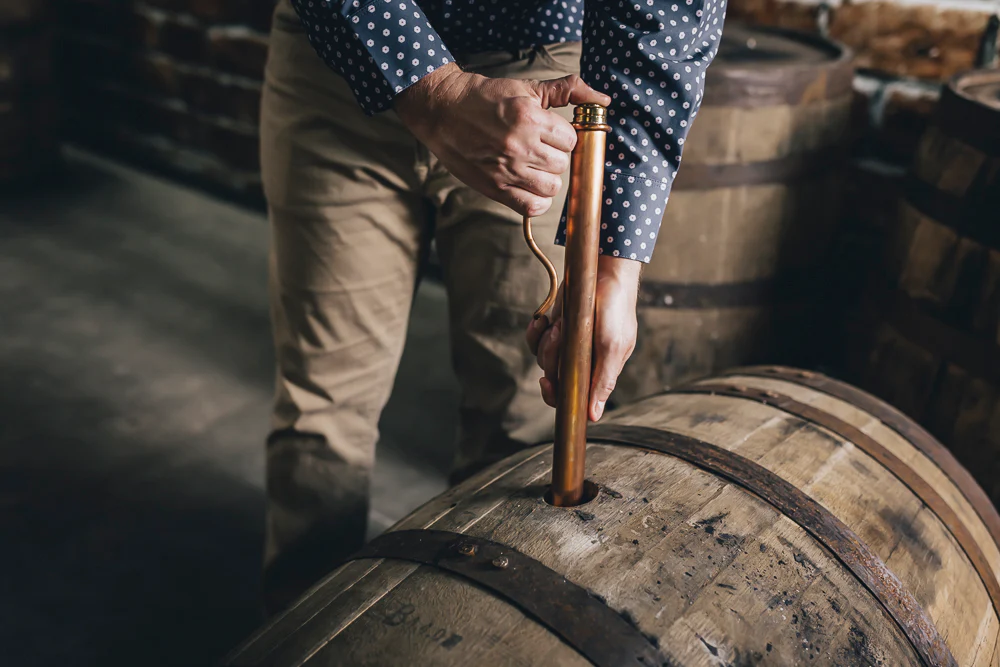
Taste Profile:
- Bourbon often boasts flavors of vanilla, oak, caramel, and a sweet, full-bodied richness due to its corn dominance and new charred oak aging.
- Whiskey, depending on its origin and grain mix, offers a wide palette ranging from the smoky, peaty flavors of Scotch to the smooth, slightly fruity character of Irish whiskey, and the spicy, bold notes found in rye whiskey.

Ultimately, while both bourbon and whiskey offer complex and enjoyable taste experiences, bourbon’s sweeter, more caramel-like profile sets it apart from whiskey’s broader spectrum of flavors influenced by grain mix, distillation, and aging processes.
What Tastes Better: Whiskey or Bourbon? The Flavor Face-off
Ah, the age-old debate: whiskey or bourbon, which one takes the crown? Honestly, it’s like asking whether chocolate or vanilla is better—it all boils down to personal taste. Bourbon brings its A-game with a sweet, smooth vibe, packed with flavors of vanilla, oak, and caramel. It’s the comfort food of the spirit world. Whiskey, on the other hand, is the ultimate flavor chameleon. From the smoky intensity of Scotch to the light, floral notes of Irish whiskey, it’s got a spectrum of tastes.
What’s Good to Mix with Bourbon?
Bourbon, with its sweet and rich profile, is incredibly versatile in cocktails. Here are some top mixers that complement its flavors:

- Ginger Ale or Ginger Beer: Adds a spicy kick that complements bourbon’s sweetness, making for a refreshing drink.
- Cola: A classic mix that brings out the vanilla and caramel notes in bourbon.
- Lemonade: Offers a sweet and tart combination that’s perfect for summer sipping.
- Simple Syrup and Bitters: The basis for an Old Fashioned, enhancing bourbon’s complexity.
- Sweet Vermouth: Mix with bourbon for a Manhattan, highlighting its deep, sweet flavors.
- Club Soda: For a lighter option, adding fizz without masking the bourbon’s taste.
- Coffee: Creates a warming, invigorating drink, especially good in cooler weather.
What’s Good to Mix with Whiskey?
Whiskey’s diverse range means it pairs well with many mixers, but here are some universal hits:

- Ginger Ale: Brings out whiskey’s spice notes, ideal for a soft yet spirited drink.
- Club Soda: Keeps it simple, letting the whiskey’s flavors shine through in a Whiskey Soda.
- Coffee: Particularly good with Irish whiskey for a classic Irish Coffee.
- Sweet Vermouth: For creating a Rob Roy (the Scotch whiskey version of a Manhattan).
- Lemon Juice and Simple Syrup: The key ingredients in a Whiskey Sour, balancing whiskey’s robustness with tart and sweet.
- Hot Water and Honey: Combine with whiskey for a soothing Hot Toddy, perfect for cold nights.
- Apple Cider: A delightful autumn mixer that complements the warmth of whiskey.
Both bourbon and whiskey can be enjoyed in numerous ways, from simple mixers to elaborate cocktails. Experimenting with these mixers can help you discover your personal favorite way to enjoy these spirited classics.
Conclusion
In the spirited journey through the worlds of bourbon and whiskey, we’ve explored the nuances that make each unique—from their rich histories to their distinctive taste profiles. Whether you’re drawn to bourbon’s sweet, comforting embrace or whiskey’s diverse, global flavors, there’s a pour out there for every palate.
Mixing these spirits with complementary partners only enhances the experience, offering endless possibilities for enjoyment. Remember, the best spirit is the one that resonates with you personally.
So, raise a glass to discovery, and may every sip invite you further into the fascinating realm of bourbon and whiskey. Cheers to your next flavorful adventure!

